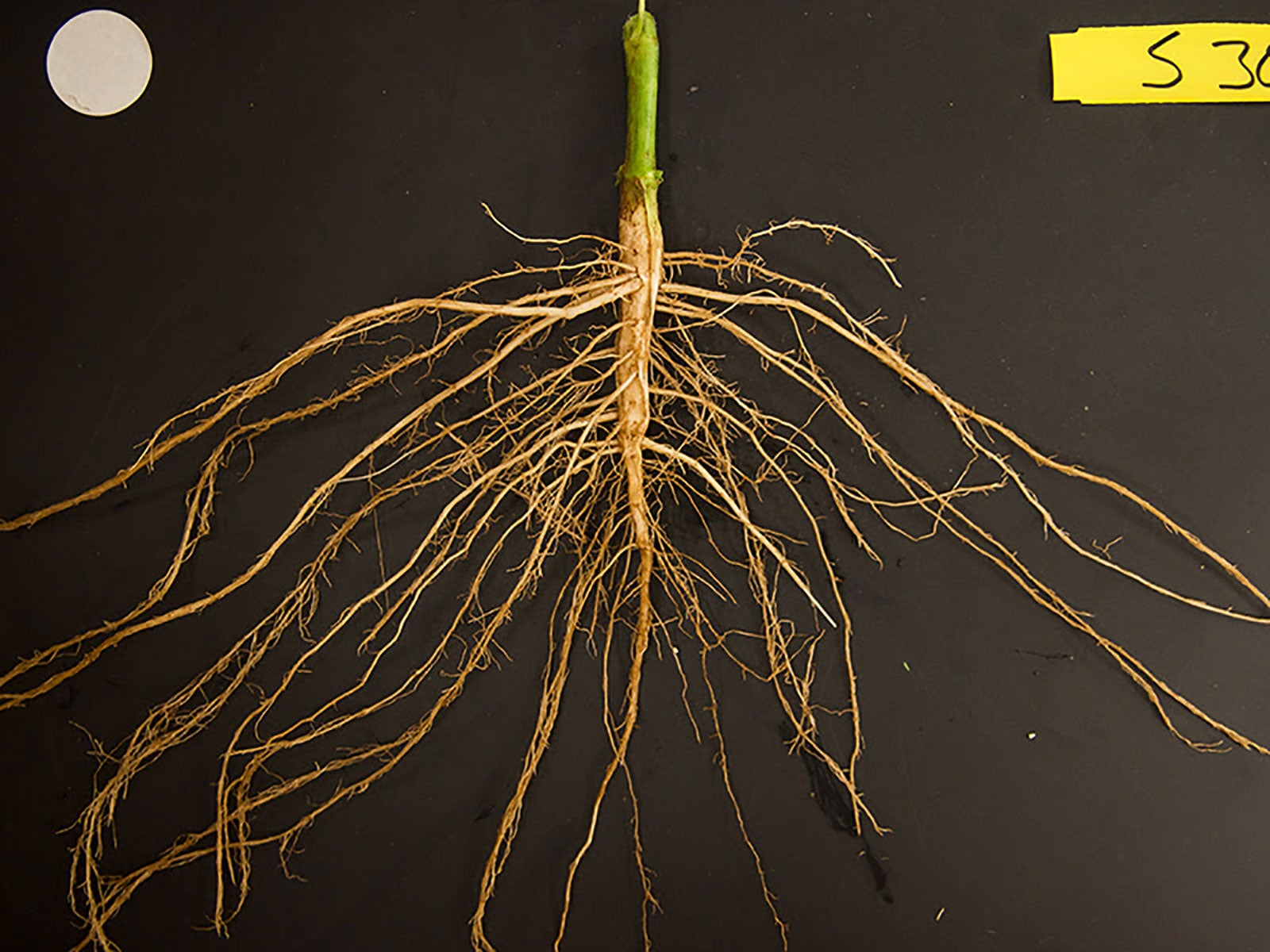Have you ever felt like your phone could do so much more, like it's holding back its full potential? Many of us, you know, wish our devices were a bit more flexible, more truly ours. That feeling of wanting to push the boundaries of what your Android phone can do often leads people to consider something called "rooting." And once you take that step, a whole new journey begins, a kind of "root grow out," if you will, where the possibilities and also the responsibilities really start to unfold.
When we talk about rooting a phone, we're essentially talking about getting deep, deep access to its core system. It's like gaining the master key, giving you administrative rights that are usually kept locked away. As my text says, the whole idea behind rooting, or getting what's called "admin rights," is to let you, the user, control and adjust your device in much more profound ways. It's not just about changing wallpapers anymore; it's about altering the very way your phone operates, which is a pretty big deal.
This "root grow out" isn't just about the initial act of gaining access; it's about everything that comes after. It's about the new ways you can use your phone, the performance bumps you might see, and, yes, the things you need to be careful about. So, in a way, we're going to explore this evolving experience of having a rooted phone, looking at what you can do, what might change, and how to keep things running smoothly and safely, too it's almost.
Table of Contents
- What Does Rooting Really Mean?
- Why Do People Root Their Phones?
- The "Grow Out": Benefits and Possibilities
- The Other Side of "Root Grow Out": Risks and Safety
- Common Questions About Rooting
- Making the Most of Your Rooted Device
What Does Rooting Really Mean?
When folks talk about rooting an Android phone, they're really talking about getting a special kind of access, the kind that lets you change just about anything on your device. It’s like, you know, unlocking the secret back door to your phone's inner workings. My text mentions that the idea behind Android getting higher permissions, or "Root," is to let you, the user, control and customize your device in a much deeper way. This is very different from how your phone usually works right out of the box.
Typically, phone makers and network providers put limits on what you can do. This is partly for your safety, and partly to keep their own apps and services front and center. But with root access, those limits are gone. You get what's often called "superuser" ability, which means you can make changes that are normally blocked. It’s a pretty big step, actually, for anyone who feels restricted by their phone's standard setup.
It's also worth noting, just a little, that the word "root" has another meaning in the tech world. My text points out that "Root is just another word for the main/home directory of your sdcard." So, if you just drop a file loosely onto your SD card, you're putting it into the "root" or main folder of that card. But for our chat today, when we say "root," we're talking about that powerful system-level access to your phone itself, which is what allows for all the interesting "grow out" possibilities we're discussing.
Why Do People Root Their Phones?
So, you might wonder, why would someone want to go through the trouble of rooting their phone? Well, it usually comes down to wanting more control, you know, a bit more freedom. My text points out that by rooting a phone, like a Samsung Galaxy S5, you can do things like put on a custom ROM, which is essentially a different version of the phone's operating system. This lets you really change how your phone looks and feels, often making it faster or adding features the original system didn't have.
Beyond just changing the look, people root their phones to run special apps, too, that need those higher permissions. These are apps that can do things the regular ones can't, like really deep backups or advanced ad blocking. Plus, there's the appeal of making your phone work better. My text also mentions you can "undervolt or overclock the processor," which means you can either make your phone's main brain use less power or make it run faster, depending on what you need. It’s about squeezing every bit of capability out of your device.
And let's not forget the annoyance of pre-installed apps you can't get rid of, often called "bloatware." Many folks root their phones just to clear out these unwanted programs, which can take up space and slow things down. So, in some respects, it’s about making your phone truly yours, removing what you don't want, and adding what you do. It’s a pretty compelling reason for many, actually, to explore this path.
The "Grow Out": Benefits and Possibilities
Once your phone is rooted, that's when the "root grow out" truly begins, meaning the expansion of what your device can do really starts to show. It’s not just about the act of rooting; it's about the new doors that open up. My text hints at this, saying that with rooting, you can put on a custom ROM, run special apps, and even adjust your phone's main chip. This opens up a whole world of possibilities for how your phone can function, which is pretty exciting for many users.
Customizing Your Phone's Core
One of the biggest draws, arguably, is the ability to change your phone's operating system itself. Think of it like putting a completely different version of Windows or macOS on your computer. With a custom ROM, you can get a fresh look, new features, and sometimes even a more efficient system than what came with your phone. It allows for a level of personal touch that's just not possible otherwise. You can make your device truly unique, reflecting your own style and needs, which is a big deal for some.
Boosting Performance
Another part of this "grow out" is the chance to make your phone perform better. My text specifically mentions the ability to "undervolt or overclock the processor." Overclocking means making your phone's central processing unit (CPU) run faster than its factory settings. This can make apps open quicker and games run smoother. Undervolting, on the other hand, means making the CPU use less power, which can help your battery last longer. These are powerful tools that let you fine-tune your phone's capabilities to suit your daily usage, which is a nice touch, really.
Removing Unwanted Apps
Perhaps one of the most satisfying aspects for many users is finally getting rid of those annoying apps that come pre-installed and just sit there taking up space. These are often called "bloatware" because they just bloat up your phone without offering much use to you. With root access, you can completely remove these apps, freeing up storage and potentially making your phone feel snappier. It’s like decluttering your digital space, which, you know, can make a real difference in how you feel about your device.
The Other Side of "Root Grow Out": Risks and Safety
While the "root grow out" brings many exciting possibilities, it also comes with a different side: the need for careful handling and awareness of potential risks. It's not all sunshine and custom ROMs; there are some important things to keep in mind once you have this much power over your device. You see, with great control comes great responsibility, and that's especially true when it comes to your phone's security, which is, honestly, a very big consideration.
Security Concerns
My text makes it pretty clear: "root之后手机会变得不安全,也就是你给了root权限的app可能会黑掉你的手机,支付软件会一直提示不安全." This basically means that after rooting, your phone can become less secure. If you give root permissions to a bad app, that app could potentially take over your phone, which is a scary thought. Payment apps, too, might constantly tell you your phone isn't safe, and that's something you'll have to deal with. It's a trade-off, really, between ultimate control and the usual safety nets provided by your phone's original setup.
Keeping Your Phone Safe After Rooting
But it's not all doom and gloom. My text offers some really useful advice on staying safe: "其实只要不乱给root权限就没事,而且也可以单独针对某个app隐.,如果你对root有一定了解,手机系统 SELinux 始终保持为 enforcing模式,不乱安装未知的app,不乱授权root权限给第三方app,不把系统的签名验证破坏,不随意修改包括system分区在内的文件,明白." This means, essentially, that if you're smart about it, you can avoid most problems. The key is to be very careful about which apps you give those powerful root permissions to. You can even choose to hide root access from specific apps, like your banking apps, so they don't flag your phone as unsafe. It's about being aware and making smart choices, which, you know, applies to a lot of things in life.
It's also important to keep your phone's SELinux system in "enforcing" mode. This is a security feature that helps protect your phone from malicious software. Don't just install any app you find, especially from unknown places, and don't give root access to apps you don't trust completely. Also, avoid messing with your phone's core system files, like those in the "system" area, and don't break the system's signature verification. These steps are pretty important for keeping your phone secure and running well after you've rooted it. You can learn more about SELinux and Android security from official resources, which is a good idea, actually.
Common Questions About Rooting
People often have a lot of questions when they think about rooting or after they've done it, and these questions are a big part of the "root grow out" conversation. Let's look at some common ones that people often ask, because they touch on the main worries and hopes folks have about this process. It’s pretty normal to have these thoughts, honestly.
Is rooting my phone truly unsafe?
This is a big one, and the answer is a bit nuanced, you know. While my text mentions that your phone can become less secure after rooting, it also quickly adds that "as long as you don't randomly give root permissions, you'll be fine." So, it's not inherently unsafe, but it does remove some of the built-in protections. The real risk comes from what you do with that newfound power. If you're careful about the apps you install and the permissions you grant, the risks are significantly reduced. It's all about being a responsible user, basically.
What kind of apps need root access?
A lot of the apps that need root access are those that want to do something really deep with your phone's system. Think about apps that block ads across your whole phone, not just in your browser, or apps that let you back up everything, including your system settings. There are also tools that let you customize your phone's animations, change your GPS location, or even manage your phone's network connections in advanced ways. These are the kinds of tools that truly benefit from having that superuser ability, so, they can do a lot more for you.
Can rooting really improve my phone's speed?
Yes, it actually can, in some ways. As my text suggests, by being able to "overclock the processor," you can make your phone's main chip work faster, which can definitely speed up how quickly apps open and how smoothly games run. Also, getting rid of unwanted pre-installed apps, that "bloatware," can free up system resources and storage, making your phone feel lighter and more responsive. So, in some respects, it's about optimizing what's already there and removing what's slowing it down, which is a pretty effective way to boost performance.
Making the Most of Your Rooted Device
Once you've gone through the process of rooting and started to experience the "root grow out," the next step is really making the most of your newly empowered device. It's about exploring the vast landscape of possibilities that are now open to you, but always with a sensible approach. You've got this incredible control, so, you want to use it wisely to truly enhance your mobile experience.
One of the best things you can do is to dive into the communities of other rooted Android users. There are many forums and online groups where people share their experiences, recommend apps, and even help troubleshoot problems. This is a great way to discover new custom ROMs, find useful root-enabled apps, and learn tips and tricks from those who have been exploring this path for a while. It’s like finding your tribe, you know, where everyone shares a common interest in getting more from their phones.
Also, don't be afraid to experiment a little, but always do your research first. Before you flash a new custom ROM or try a powerful root app, read reviews, watch tutorials, and understand what it does. Make sure you have backups of your important data, just in case something doesn't go as planned. This way, you can enjoy the benefits of your rooted phone without unnecessary worry. It’s about being adventurous but also prepared, which is always a good idea, apparently.
Remember, the goal of this "root grow out" is to make your phone work better for you, to truly customize it to your liking. Whether it's extending battery life, speeding up performance, or just making your phone look exactly how you want it, the power is now in your hands. So, take your time, explore the options, and enjoy the freedom that comes with having deep control over your Android device. Learn more about phone customization on our site, and link to this page for more advanced tips.



